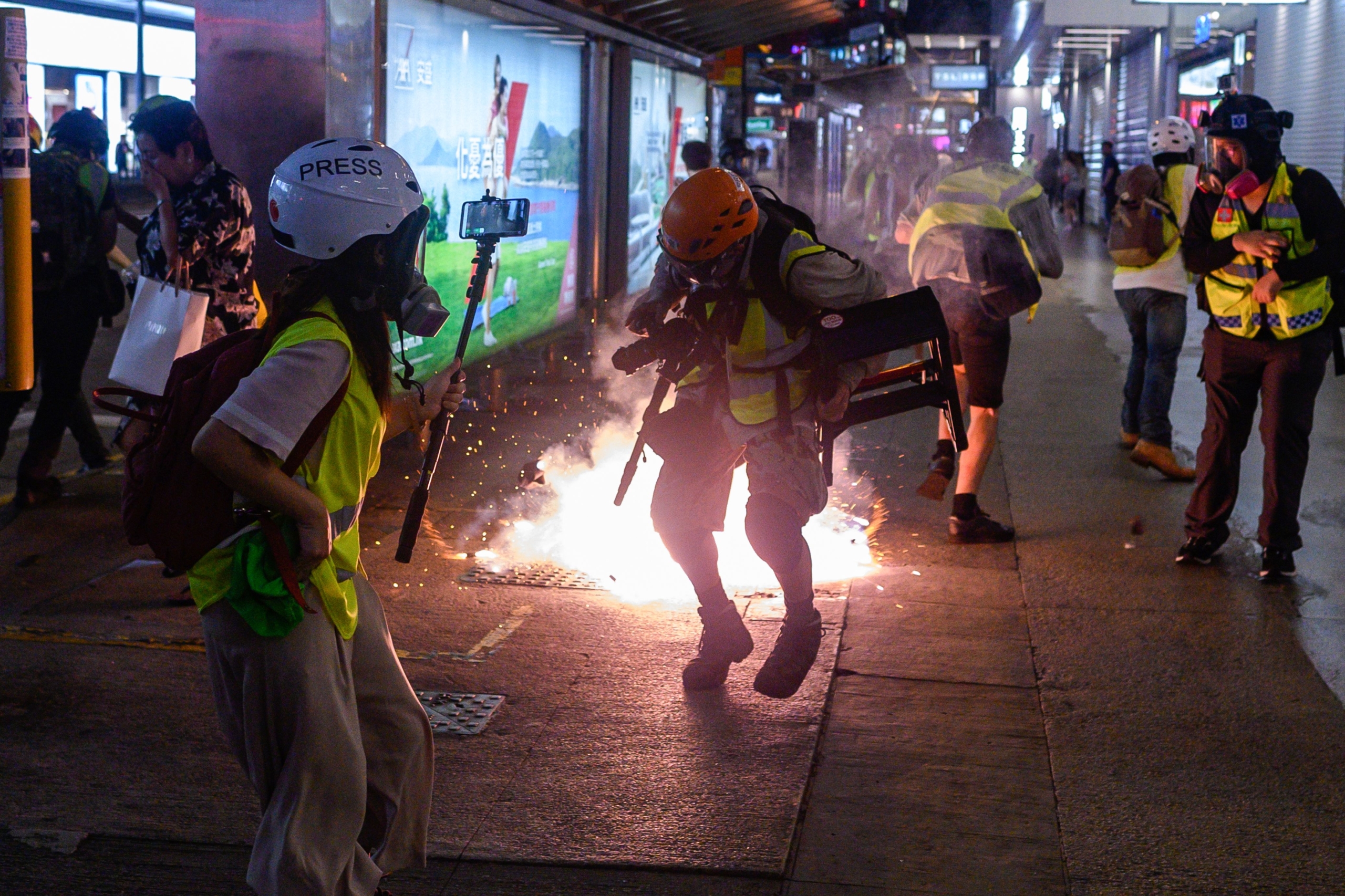Sign up for The Media Today, CJR’s daily newsletter.
After 2019, as China tightened its grip on Hong Kong and mass protests gripped the city, police raided the Apple Daily and Stand News newsrooms and prosecuted their top editors with national security crimes. Several smaller media outlets shut down rather than risk similar treatment.
It was the beginning of a chill for journalists.
First as a local news reporter, and later at the Wall Street Journal, I witnessed the trials and sentencing of almost twenty journalists, citizen reporters, editors, and commentators.
Daily life for the remaining reporters fell into a new rhythm. Slow. Careful. Some reporters and editors from shuttered newsrooms started new media ventures, YouTube channels, and podcasts. Many steered clear of the city’s politics and focused instead on pop culture or lifestyle reporting.
Even at news publications, there were vastly fewer revelatory stories on sensitive political issues and investigations on abuses of public power. Journalists shifted uncomfortably in their seats when they heard story ideas they felt could touch a nerve in the government. I saw editors press for extra-solid sourcing in anticipation of government condemnation.
When Taiwan held a presidential election—a sensitive event in China, which covets the island—reporters murmured about how to handle sound bites and footage differently depending on whether Beijing’s preferred candidate won. (They didn’t.)
The Hong Kong Journalists Association became an important defense against the erosion of an effective press—and a frequent target for the ire of the Chinese government.
The association advocates the rights and interests of journalists—it issues a widely read annual index on the state of press freedom and works against legislation that would further erode it. It financially supports journalists who are in legal trouble. It is fifty-six years old, which makes it older than the government it so often critiques (which was formed in 1997 when the governance of Hong Kong was passed from Britain to China).
Despite the fact that members of press associations had been expelled from the country previously, the Journal wanted its reporters in Hong Kong to sign up for the HKJA—so they could be protected, and to have press cards that could help mitigate highly charged moments with police. During 2019, as other outlets followed suit, HKJA’s membership swelled.
I had been on its board for three years when, in May, I decided to run for its chair. I wanted to show reporters in the city that they could continue to report because someone was still willing to defend their rights.
Three weeks ago, my editor at the Wall Street Journal found out about my candidacy and immediately directed me to withdraw from the election. She said that the role would be incompatible with my job as a Journal reporter.
The Journal, she said, continues to report on incidents related to press freedom in the city, such as trials against the press, so having its employees advocating for press freedom publicly would create a conflict. The Journal, my supervisor said, did not want its reporters seen calling for greater freedoms—because, unlike in Western nations, it is not an established principle in Hong Kong.
Because I was the only candidate running for chair, my withdrawal would have meant that union operations were paralyzed. So when I won, I stayed on. For three weeks I existed in a kind of limbo. And then, on July 17, I was fired. The Journal told me it was restructuring. When two previous rounds of layoffs affected more than a dozen journalists and editors, I had been told my position was secure. But this round there was one layoff: me.
The Global Times, controlled by the Chinese state, said that the Journal’s decision was intended to distance it from our union, because we “wantonly defame[d]” the government.
My situation was not unique. I had fielded resignations from other board members who faced similar pressure from their employers. Journalists and employers who sought support from us are now understandably wary of potential backlash by association.
And I am without a job. A striking contrast sprang to mind. Over the past year the Journal rallied its entire staff to a campaign for the release of Evan Gershkovich, who was handed a sixteen-year sentence by a Russian court Friday, after a sham three-day trial and unlawful detention for more than a year.
The Journal’s staff in Hong Kong, myself included, participated in a “Run for Evan” event along Hong Kong’s harbor, which was initiated and organized by the company. The Journal also called for solidarity with Evan at the Society of Publishers in Asia Awards, held in Hong Kong.
If press groups like HKJA cease to exist, as the Chinese government—and perhaps foreign news outlets—would find convenient, there will be fewer protections for reporters doing the same job as Evan, in similar circumstances, here in Hong Kong.
Not to mention fewer communities for weary correspondents to recharge with a drink, find solace among peers, and regain the strength to keep on reporting against odds that only seem to grow steeper.
Has America ever needed a media defender more than now? Help us by joining CJR today.



